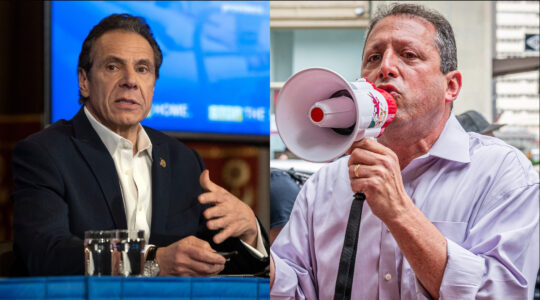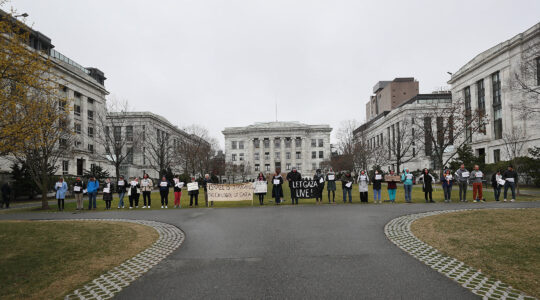WASHINGTON (JTA) — President Obama’s new Islamic envoy admitted to making critical statements against the prosecution of a professor with ties to a Palestinian terrorist group.
"I made statements on that panel that I now recognize were ill conceived or not well formulated," Rashad Hussain told Politico last weekend in reference to comments made at a 2004 Muslim students conference in Chicago.
Hussain, a deputy associate White House counsel, was appointed last week as the U.S. envoy to the Organization of the Islamic Conference.
At the 2004 conference, Hussain called the prosecution of Sami Al-Arian part of a pattern "of politically motivated prosecutions where you have huge Justice Department press conferences announcing that a certain person is a grave threat to American security."
Hussain, then a student at Yale Law School, did not offer a view on Al-Arian’s innocence or guilt on the charges that Al-Arian served as a leader for Palestinian Islamic Jihad in the United States.
Al-Arian was acquitted on eight of 17 counts; the jury could not arrive at a verdict on the other counts. Rather than face a retrial, he pleaded guilty to one conspiracy charge in exchange for early deportation.
Hussain’s remarks were revealed in reports by The Global Muslim Brotherhood Daily Report, a watchdog focusing on Islamist groups, and on the Cybercast News Service, a conservative Web site, and disseminated by the Zionist Organization of America.
Initially Hussain implied that the comments were misreported and that they came from Laila Al-Arian, the daughter of Al-Arian and another panelist at the conference. Suspicion was raised as well when his comments disappeared from the Web site of a magazine on Middle East issues.
Hussain’s confession was prompted when Politico confronted him with a recording of the presentation in which Hussain can be heard distinctly making critical comments about the Al-Arian case and other cases against Muslim terror suspects. In his statement Hussain also admitted that he asked Washington Report, the magazine in question, to remove the quotations attributed to him.
"When I saw the article that attributed comments to me without context, leaving a misimpression, I contacted the publication to raise concerns about it," he said. "Eventually, of their own accord, they modified the article."
On Monday, the White House said it continued to have confidence in Hussain, noting his writings on how to counter the exploitation of Islam by terrorist groups.
JTA has documented Jewish history in real-time for over a century. Keep our journalism strong by joining us in supporting independent, award-winning reporting.





